Introduction
Do Robins Eat Seeds: Robins, those charming and ubiquitous birds known for their vibrant red breasts, have long been a subject of fascination and curiosity among bird enthusiasts and nature lovers alike. These avian creatures are often associated with the arrival of spring, their cheerful songs serving as a musical backdrop to the changing of seasons. However, that frequently arises in discussions about robins nesting is whether or not they consume seeds as part of their diet. As we delve into the fascinating lives of robins, we’ll uncover not only what they eat but also the broader significance of their dietary choices in the intricate web of nature.
Robins, scientifically known as Turdus belong to the thrush family and are native to North America. Their characteristic orange-red breasts, set against a slate-gray black and white underparts, make them easily recognizable and endearing to many birdwatchers. Despite their enchanting appearance, robins are primarily known as insectivorous birds. They are often seen foraging for earthworms, insects, and other invertebrates on lawns, gardens, and woodland floors, using their keen eyesight to spot movement and their sharp beaks to extract their prey from the soil or leaf litter.
However, the diet of robins is not limited to insects alone. While they are not classified as strict seed-eaters, these adaptable birds do occasionally incorporate seeds and fruits into their meals, particularly during the fall and winter months when insects become scarcer. This dietary flexibility allows them to survive and thrive in various environments, from urban gardens to rural woodlands. Nonetheless, their preference for animal-based foods remains a defining characteristic of their feeding habits.
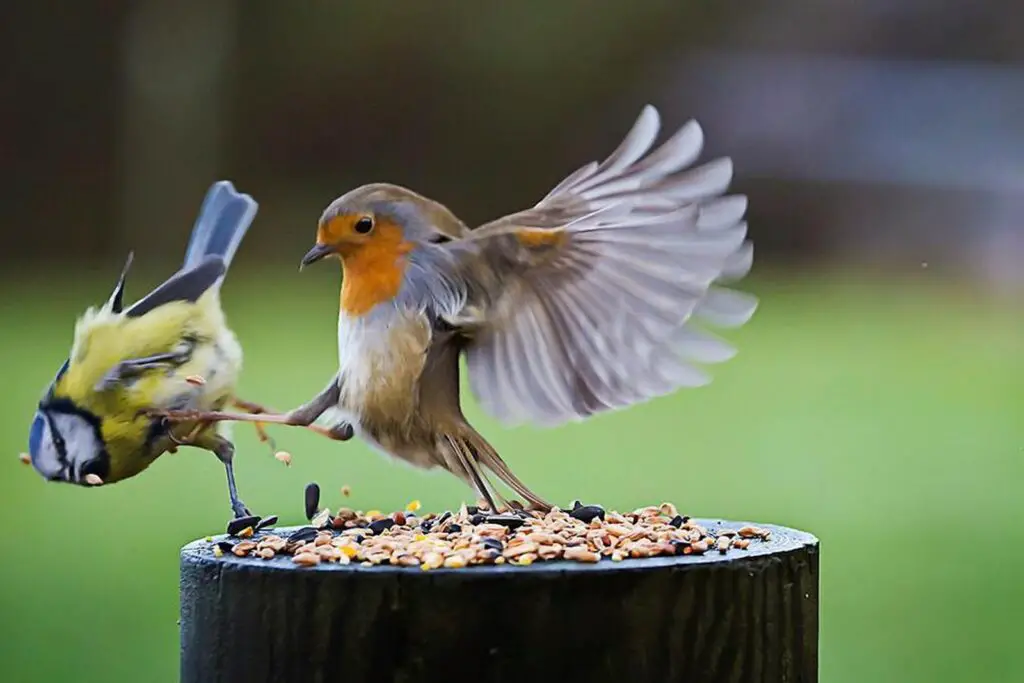
What is the best food to feed Robins?
If you’d like to attract robins at bird feeders, feed them chopped apples, berries and mealworms. They don’t eat birdseed. They prefer to forage for their food in lawns and open areas. Providing water is important for robins because they like to drink and bathe regularly.
Mealworms: Robins are primarily insectivorous birds, and mealworms are a close match to their natural diet. These soft-bodied larvae are rich in protein, making them an excellent choice for feeding robins. You can offer live or dried mealworms in a shallow dish or specialized mealworm feeder.
Fruits: Robins have a penchant for fruits, especially those that are soft and ripe. Common choices include berries (such as blueberries, strawberries, and currants), chopped apples, pears, and raisins. Ensure that the fruits are fresh and free from pesticides.
Berries: In fresh berries, robins relish the fruits of various shrubs and trees, including holly, dogwood, elderberry, and serviceberry. Planting these berry-bearing plants in your garden can a natural food source for robins.
Seed Mix: While robins are not primarily seed-eaters, they do consume seeds and grains, particularly during the fall and winter when insects are scarce. A seed mix containing sunflower seeds, millet, and cracked corn can be offered in platform or ground feeders.
Why are robins so friendly?
As a gardener digs over the soil, robins stand by expectantly, hopping back and forth in between sitting and watching, their sparkly eyes looking for juicy worms to be uncovered. This helps to answer the age-old question: ‘why are robins so friendly? ‘ Well, there might just be some tasty morsels in it for them!
Natural Curiosity: Robins are naturally curious birds. Their inquisitiveness drives them to investigate their surroundings, including the activities of humans. This curiosity can lead them to come closer to people, making it appear as though they are friendlier than some other bird species.
Proximity to Human Habitats: Robins are highly adaptable birds that have successfully colonized a wide range of environments, from forests to urban areas. Their ability to thrive in close proximity to humans has made them more accustomed to human presence, and they often build nests in gardens, parks, and yards, where they are frequently exposed to human activity.
Foraging Habits: Robins are ground foragers, and they frequently search for earthworms and insects in lawns, gardens, and open areas. This puts them in close proximity to people who are working in their yards or gardens. They quickly learn that human activity can disturb the soil and bring worms and insects to the surface, making it easier for them to find food.
Tolerance of Human Presence: Robins are generally more tolerant of human presence than many other bird species. While other birds may become skittish or fly away when humans approach, robins often remain calm and continue their activities. This tolerance can give the impression of friendliness.
What are robins favorite fruit?
A Robin’s Favorite Winter Foods
Winter robins eat berries, other fruits, and seeds they find on shrubs, trees, and vines. If robins happen to overwinter near you, you can offer them frozen or fresh fruit. They’ll go for apple slices, raisins, blueberries, strawberries, raspberries, and cherries.
Berries: Robins absolutely adore berries. Whether it’s plump, juicy raspberries; sweet, ripe strawberries; or succulent blueberries, these fruits are a robin’s delight. They are often seen perched on bushes and trees, plucking berries during the summer and fall months. In fact, robins play an role in seed dispersal for many berry-producing plants, contributing to the growth and propagation of these fruit-bearing species.
Cherries: Cherries, with their sweet and slightly tart flavor, are another favorite of robins. As cherry trees produce fruit in late spring to early summer, robins eagerly partake in the harvest. The red color of cherries may even remind us of the robin’s own breast, making it a fitting choice for these birds.
Apples and Pears: Robins appreciate the soft and juicy flesh of apples and pears. These fruits are commonly found in orchards and gardens, making them accessible to robins during the summer and early autumn. Robins will peck at these fruits when they are ripe and often relish the sugary goodness.
Are robins a smart bird?
How smart are robins? A. Robins are not quick to learn new things as blue jays, and do not have as good reasoning power as jays. But they are adaptable, and can quickly figure out how to find food and shelter in a new area where they’ve never been before.
Foraging Skills: One of the key indicators of a bird’s intelligence is its ability to find food effectively. Robins are skilled foragers, primarily relying on their keen eyesight and observation to locate earthworms, insects, and other invertebrates in the soil. They use a “head-tilt” technique to listen for the sounds of prey moving beneath the ground, demonstrating a keen understanding of sound localization.
Memory and Navigation: Robins are known for their impressive navigational abilities. Some species, like the European Robin, are migratory birds that travel thousands of miles during seasonal migrations. They can accurately return to their breeding grounds year after year, indicating a sophisticated internal compass and memory system.
Territorial Intelligence: Robins are territorial birds, and they are adept at defending their nesting and foraging areas. They have a good sense of the boundaries of their territory and will actively drive away intruders. This territorial behavior requires the ability to recognize individual birds and previous encounters.
Are robins clever birds?
Rachael tests the ability of the robins to remember which holes contain food as a means of understanding how good robins are when it comes to spatial memory. It turns out that they have “prodigious memories and an impressive capacity for learning”, according to Rachael.
Foraging Strategies: Robins are primarily insectivorous birds, known for their ground-feeding habits. They employ several clever strategies to locate and capture their prey. One notable technique is the “head-tilt,” where they cock their heads to listen for the sounds of earthworms and insects moving beneath the soil. This demonstrates a keen sense of sound localization and a clever adaptation for finding hidden food sources.
Territorial Behavior: Robins are territorial birds and can be quite assertive in defending their nesting and foraging areas. They are adept at recognizing individual birds and previous encounters. This territorial intelligence is crucial for maintaining their territories and ensuring access to essential resources.
Navigational Skills: Some robins, such as the European Robin, are migratory birds that undertake long-distance migrations between breeding and wintering grounds. They possess impressive navigational abilities, relying on celestial cues, magnetic fields, and landmarks to find their way across vast distances. This suggests a level of cognitive complexity and adaptability in their navigation.
Do robin birds have feelings?
Birds Do Have Brains
And they are exceptionally intelligent creatures when it comes to socialization. In fact, it’s the complex responses seen from bird socialization that leads scientists to believe they experience emotions at least to some degree.
Complex Behavior: Robins, like many other bird species, engage in a wide range of complex behaviors. These behaviors include courtship displays, vocalizations, nest-building, and parenting. Such behaviors often involve decision-making and responses to environmental cues, indicating a level of cognitive processing and, potentially, emotional responses.
Parental Care: Robins are known for their dedicated and protective parental care. Both male and female robins take turns incubating eggs and feeding their nestlings. They show distress when their nests are threatened and actively defend their territory, suggesting a sense of attachment to their offspring and nesting site.
Bonding: Robins are social birds and form pair bonds during the breeding season. These bonds can involve cooperative activities like nest building and foraging. While the nature of these bonds is not fully understood, they may reflect social attachments and affiliations.
Stress Responses: Research has shown that birds, including robins, exhibit physiological responses to stress, such as increased heart rate and hormone release. These responses are indicative of an ability to experience stress or anxiety, which is often associated with emotional states.
Is the robin an aggressive bird?
Its public image is one of a tame, friendly bird, when in reality, it is one of the most aggressive birds you could meet! If you’re another robin that is. Robins are fiercely territorial throughout the year and will not tolerate another robin entering their patch of turf. And it’s not just the males.
Territorial Behavior: Robins are territorial birds, especially during the breeding season. They establish and defend territories, which can lead to confrontations with other robins or intruding birds. These territorial disputes may involve vocalizations, posturing, and, in some cases, physical skirmishes. While these interactions can appear aggressive, they are primarily driven by the need to protect nesting sites and ensure access to food resources.
Nest Defense: Robins are dedicated parents and vigorously defend their nests and nestlings. When they perceive a threat, such as a potential predator or a curious human, they may exhibit protective behaviors that can seem aggressive. This can include loud alarm calls, dive-bombing, and swooping to deter intruders. However, their intentions are to safeguard their offspring, not to cause harm.
Feeding Territories: Robins are ground foragers, and they establish feeding territories during the non-breeding season. They can be protective of these feeding areas and may engage in disputes with other robins or birds trying to access the same food sources. Again, this behavior is more about resource protection than true aggression.
What are robins favorite gifts?
Robin likes the following and giving her other items will result in her being unimpressed, or in some cases, upset. This can cause your friendship to go down, so make sure not to accidentally give him the wrong item! All cooked goods except Fried Egg, Bread, and Strange Bun. All Flowers except Poppy.
Food: The most appreciated gift you can offer robins is a reliable and diverse food source. Robins are primarily insectivorous birds, so mealworms, crickets, and other live or dried insects is a great gift. They also relish fruits like berries, chopped apples, pears, and raisins. Additionally, offering a mix of seeds, especially during colder months when insects are scarce, can be a valuable gift.
Nesting Materials: Robins appreciate gifts that help them build or improve their nests. They commonly use twigs, grass, and mud for nest construction. You can offer nesting materials such as small twigs, straw, and bits of yarn or string. Placing these materials in a designated area in your yard can attract robins and aid them in their nesting efforts.
Shelter: While not a tangible gift, creating a bird-friendly environment in your yard can be a valuable offering. Planting native trees and shrubs robins with natural shelter, nesting sites, and foraging opportunities. Dense vegetation can also protection from predators.
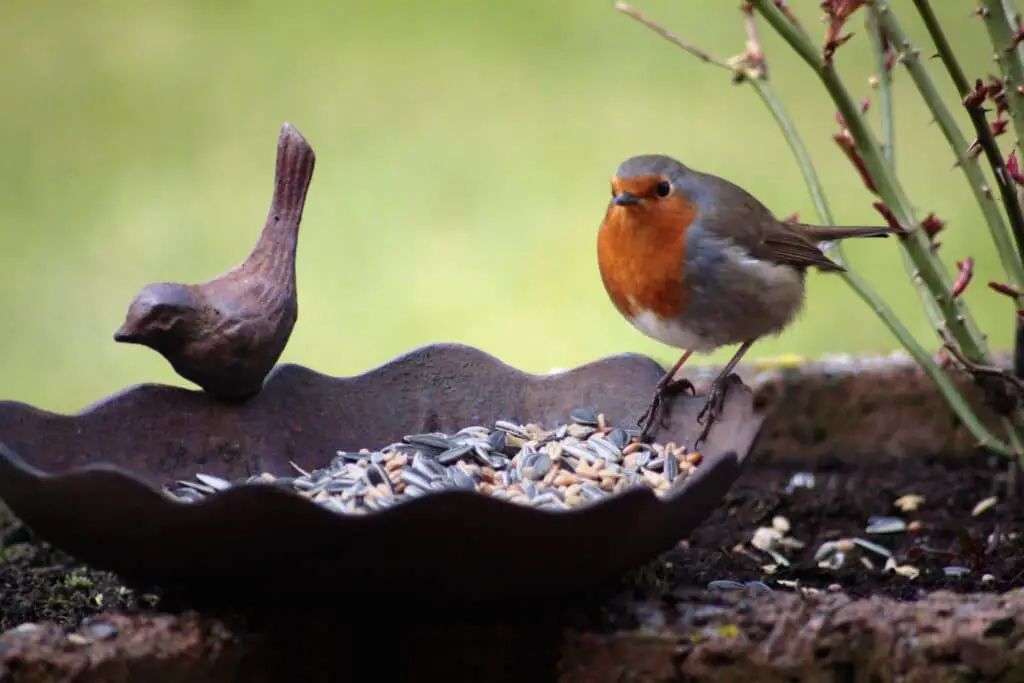
Conclusion
In robins eating seeds is not a simple yes or no answer but rather a nuanced exploration of their dietary habits and ecological roles. While robins are primarily insectivorous birds, they are not strict seed-eaters, yet they do consume seeds and fruits as part of their diet, particularly during certain times of the year. Robins’ preference for insects and invertebrates is well-documented, and their foraging behavior is a vital component of the ecosystem. Their voracious appetite for earthworms and insects can help control insect populations, which can benefit both gardeners and farmers. Their feeding activities also play a crucial role in nutrient cycling within ecosystems as they help break down organic matter.
However, robins’ willingness to incorporate seeds and fruits into their diet demonstrates their adaptability. During the fall and winter months, when insects are less abundant, robins rely more heavily on berries, fruits, and seeds. This robin dietary flexibility allows them to survive in diverse habitats, from suburban gardens to forests, making them one of the most common and widespread bird species in North America. Robins’ consumption of seeds and fruits also has ecological implications. They play a role in seed dispersal by ingesting seeds from various plants and then excreting them in different locations, contributing to the spread and regeneration of plant species.
This makes them unwitting agents of forest and ecosystem regeneration. In essence, the dietary habits of robins are a testament to their adaptability and ecological significance. While they are not classified as strict seed-eaters, they exhibit a remarkable capacity to adjust their diet based on seasonal availability and environmental conditions. This flexibility is a testament to their ability to thrive in diverse landscapes and underscores their importance as key players in the intricate tapestry of the natural world. So, the next time you spot a robin in your backyard or a nearby park, you can appreciate them not only for their melodious songs and striking appearance but also for their dynamic dietary choices and their role in maintaining the balance of ecosystems.

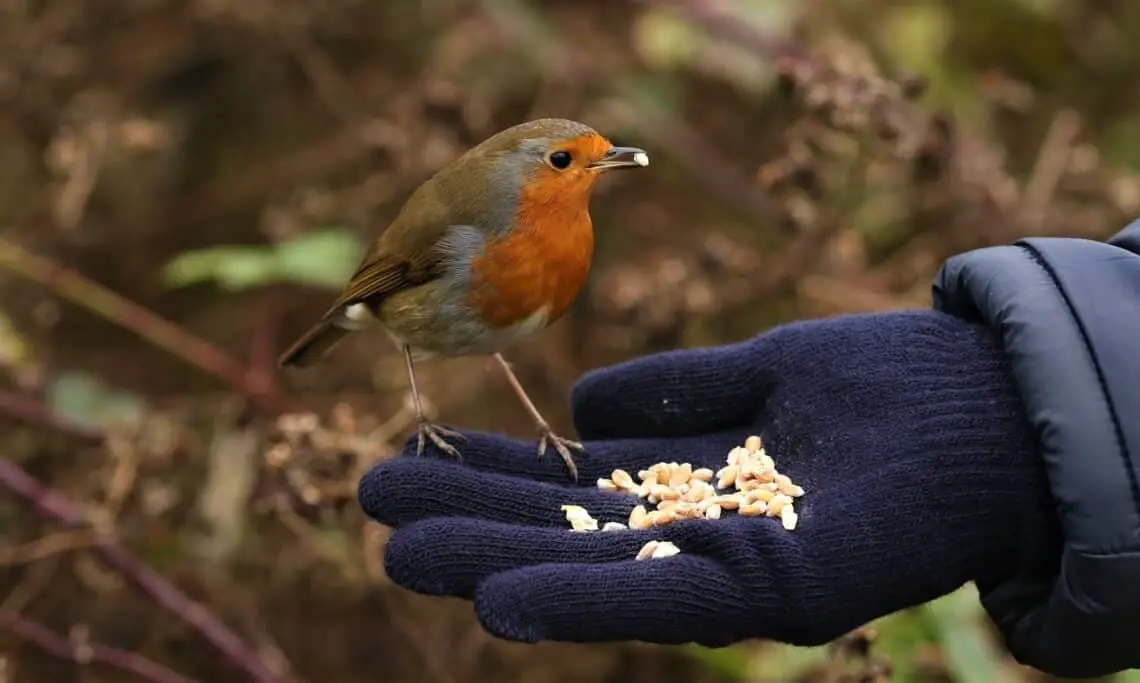
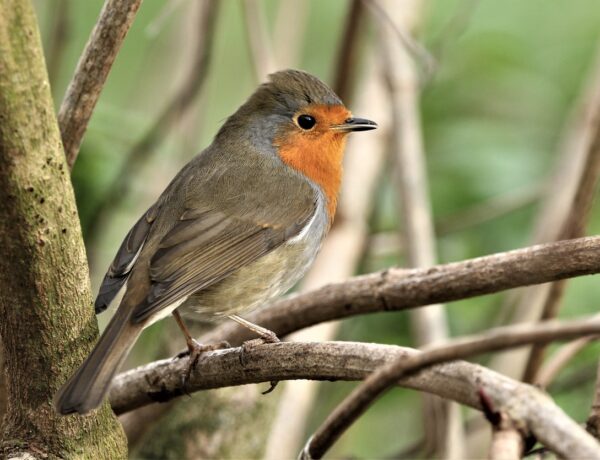
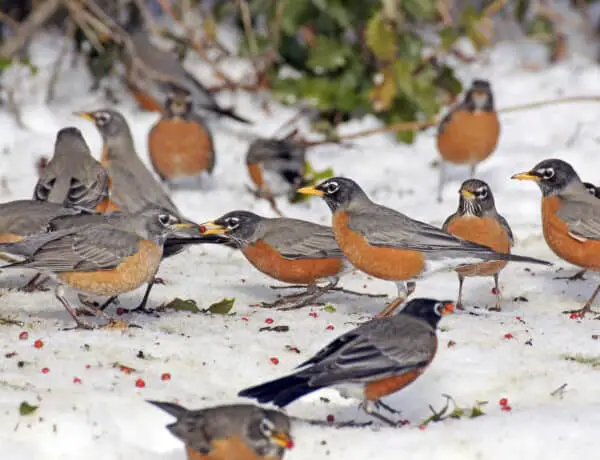
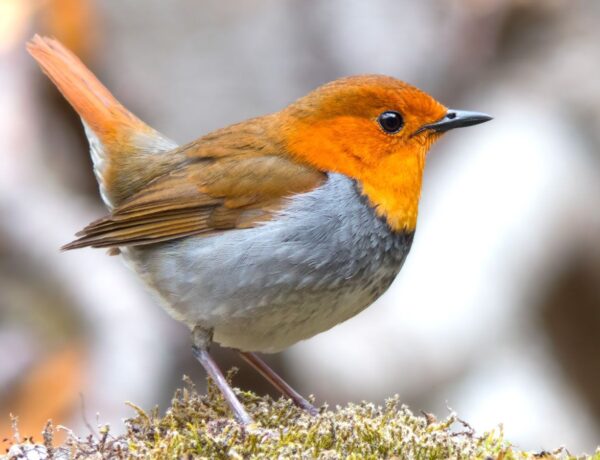
No Comments